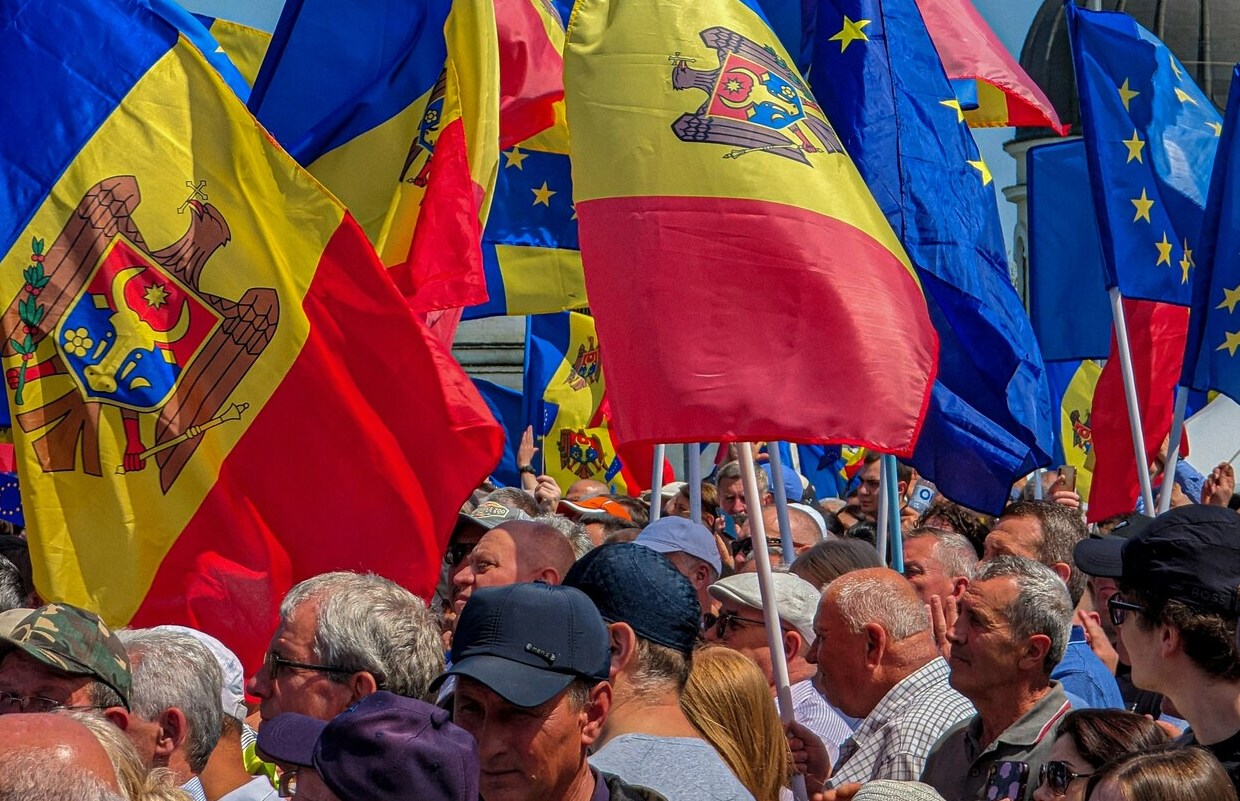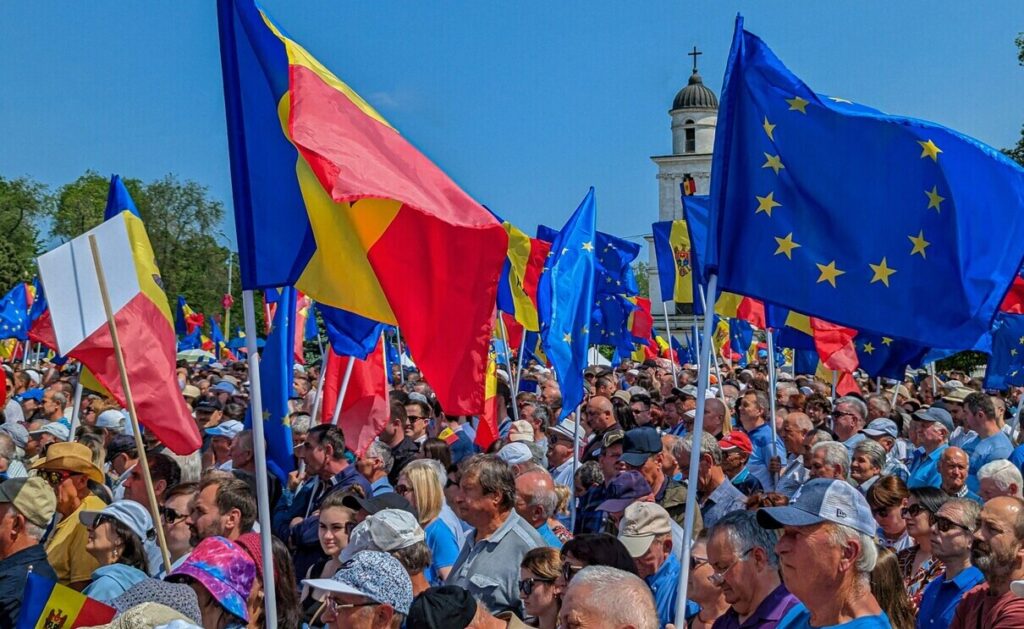Truth & Goodness
Poison on a Plate: What Drives Us to Eat Dangerously?
01 March 2026

Despite a record wave of Kremlin disinformation, the Moldova parliamentary elections delivered a pro-Western mandate. Prof. Adam Burakowski explains how Moldova resisted and what the result means.
On 28 September, in the parliamentary elections in the Republic of Moldova, the ruling Party of Action and Solidarity (Partidul Acțiune și Solidaritate – PAS) won over 50 percent of the vote, securing a second term with a majority of seats. Society decisively rejected the “Russian world”, which was represented by almost all the other parties. Russia had only corruption, poverty and disinformation to offer Moldovans. A hardly attractive package, though for years many residents of the country let themselves be seduced by Moscow. Now they no longer do. Why?
To understand what the “Russian world” means for the Republic of Moldova, we need to go back more than two centuries. In 1812, Russia seized the northern part of the then Moldavian Principality and annexed it to its empire. The Tsarist authorities pursued a policy of Russification, denationalisation and promotion of a “Slavic” element (the inhabitants of these territories speak Romanian, a Romance language, which sets them apart from neighbouring nations).
The Russians expanded Chișinău (founded in the Middle Ages) and made it the provincial capital. Russian-speaking populations were resettled there en masse, giving the city a distinctly Russified character. In the first decades of their rule they also brought in the Gagauz — an Orthodox people of Turkic origin resettled from Bulgaria. The Gagauz were loyal to Moscow and formed a pillar of Russian rule in Moldova.
In 1918, after the end of World War I, Romania recovered the territories seized by Russia in the previous century and incorporated them into the Romanian state. In 1940, however, the Soviet Union, then allied with Germany, once again seized these lands. A year later Germany attacked the Soviets, and Romania, allied with Germany, took the region back.
In 1944, the Soviets expelled the Germans and Romanians and created the Moldavian Soviet Socialist Republic. They continued the imperial policy of the Tsars by even more brutal methods: in the first years of Soviet rule they engineered a man-made famine in which approximately 250,000 people died, and tens of thousands were deported to death camps in Siberia.
Russification was pursued even more harshly than under the Tsars. The Romanian language was written in Cyrillic and saturated with Russian loanwords. Russian-speaking populations were resettled on a massive scale, mainly to Chișinău. Towns and villages were given a Soviet look and were built in ways that facilitated population control.
In the 1970s and 1980s, the economic situation in Soviet Moldova improved and “life became bearable”. The nostalgia that persists in today’s Republic of Moldova for the Soviet occupation concerns precisely this period.
Worth reading how Russia is Replacing France in Africa
In 1991, the Republic of Moldova declared independence. Transnistria, with its capital in Tiraspol — the most Russified region of the country — did not recognise Chișinău’s authority. That remains the case today. The pro-Russian region of Gagauzia recognises the authority of the government in Chișinău.
The first years of the independent Republic of Moldova brought poverty, uncertainty and corruption. Successive governments, usually fairly close to Moscow, delayed reforms and helped themselves to the spoils. The situation began to improve towards the end of the first decade of the 21st century, when the first genuinely pro-Western options emerged, seeking Moldova’s accession to the European Union and closer ties with Euro-Atlantic structures.

Political change, however, came only at the end of the following decade, when the charismatic politician Maia Sandu and her PAS party came to power. Only she was able to set the country firmly on a pro-Western course. In 2020, Sandu became president, and a year later PAS won the parliamentary elections and secured an outright majority.
In 2022, Russia launched its aggression against Ukraine. The Republic of Moldova decisively took the side of the victim, offering support to Ukraine commensurate with its capabilities. At the same time, talks on Moldova’s accession to the European Union accelerated, and Brussels began to support more actively the reforms pursued by the government in Chișinău. In 2024, presidential elections and a referendum on European integration were held. The pro-Western option won both (Sandu remained president), but it was a narrow victory.
At that moment Moscow became more heavily involved in the elections, hoping that the pro-Russian parties grouped in the Patriotic Bloc (BP) and the Alternative Bloc (BA) would win. BP had virtually no programme, relying on the same old Soviet-era rhetoric and symbolism. BA, by contrast, pretended to be pro-Western, without much success.
The Russians launched an unprecedented online offensive, using a fairly novel method. Fully aware that Russian media are credible to no one (even BP and BA activists did not believe their propaganda), they set up fake “Western” outlets, giving them the look and feel of real media, then broadcast “information” that was later amplified by thousands or even hundreds of thousands of anonymous social-media accounts.
This messaging targeted Maia Sandu and PAS. She was accused of drug addiction (lately one of Russian propaganda’s favourite tropes), corruption, immorality and subservience to a “world government”. In this narrative, Sandu was demonised even more than Ukraine’s president, Zelensky.
It turned out, however, that the campaign did not win over the hearts of Moldovan citizens, and the government prevented some pro-Russian candidates from standing. PAS received over 50 percent. BP took 24 percent, BA 8 percent, while 6 percent went to the party of a shady businessman (despite ties to Moscow, he is more an admirer of money than of Putin), and over 5 percent to a party calling for Moldova to unite with Romania.
Formally, only BA advocated a pro-Russian platform, and it won less than one-quarter of the vote. Even in Gagauzia, BP won 82 percent, while the remaining, formally pro-Western, parties shared the rest.
Read how Russia turns the West’s faith in sanctions into leverage.
What does Russia have to offer the people of the Republic of Moldova? The “Russian world”, which — as Moldovans know perfectly well — means corruption, poverty and disinformation. In neighbouring Ukraine, the Russians “offer” death and destruction as well.
Unlike in the Tsarist era, when Chișinău was developed on a grand scale, and the Soviet period, when after a decade of mass murder things at least began to be built, today’s Russia has no positive programme capable of attracting anyone beyond a shrinking group of nostalgics and people intoxicated by absurd propaganda.
The Republic of Moldova is not currently the victim of military aggression. Its citizens were, however, subjected to online aggression on an unprecedented scale — and yet they proved resilient, setting a positive example for other nations of Central and Eastern Europe.
The Republic of Moldova now has a chance to repair its difficult economic situation and continue state reforms. A few days before the elections, Vlad Plahotniuc — a corrupt oligarch who had been hiding abroad — was deported to Chișinău and will now face justice. This is a symbolic moment that could mark the beginning of a real renewal of the state.
Moldova’s success in these parliamentary elections will be a success for our entire region.
Read the original article: Rekordowy atak propagandy Rosji. Mołdawia wybrała Zachód

Truth & Goodness
01 March 2026


Zmień tryb na ciemny